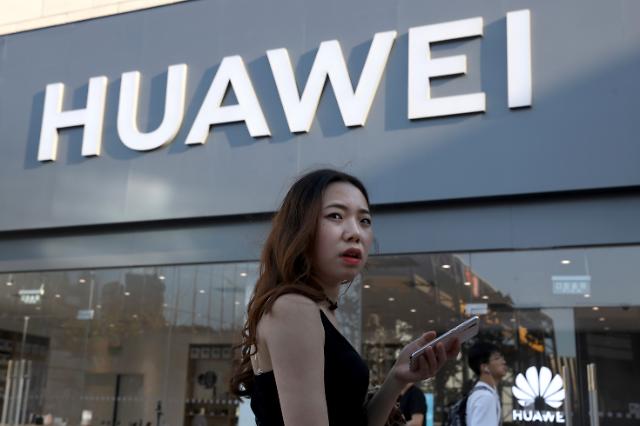[AP / Yonhap Photo]
The opening ceremony for Huawei's 5G lab in central Seoul on Thursday came after the Chinese company was placed on a list of foreign firms barred from receiving components from U.S. exporters without a license. Huawei has tried to establish three 5G technology labs in Asia, Europe and the Middle East and create a 5G ecosystem through collaboration with local companies.
Huawei officials promised to establish a 5G ecosystem with South Korean companies. "We are pleased to be able to work with our industry partners to develop a 5G ecosystem," Yang Chaobin, president of Huawei's 5G product line, said in a congratulatory message.
Through its 5G lab, Huawei hopes to provide an optimized test environment and free services to South Korea startups and partner companies, focusing on cloud, virtual reality and augmented reality, connected cars, robots, and smart manufacturing.
South Korean firms offered commercial 5G services for smartphone users in April. LG U+ was the only South Korean mobile carrier to pick Huawei's 5G equipment. Thanks to the fast supply of Huawei's equipment, LGU+ has established 5G base stations quicker than competitors.
Despite U.S. allegations that Huawei's equipment and backbone network infrastructure has security risks which could lead to leaks of vital information including personal and industrial information, LGU+ has shown trust for the security of Huawei's 5G equipment.

